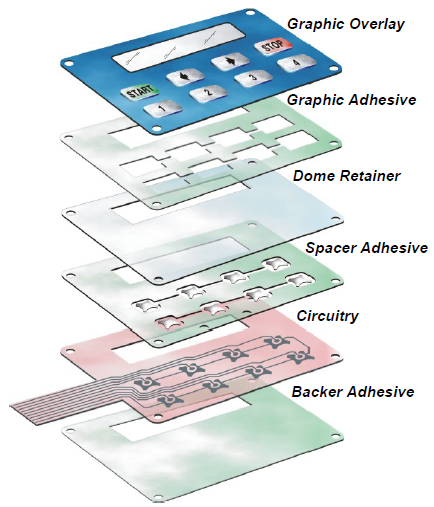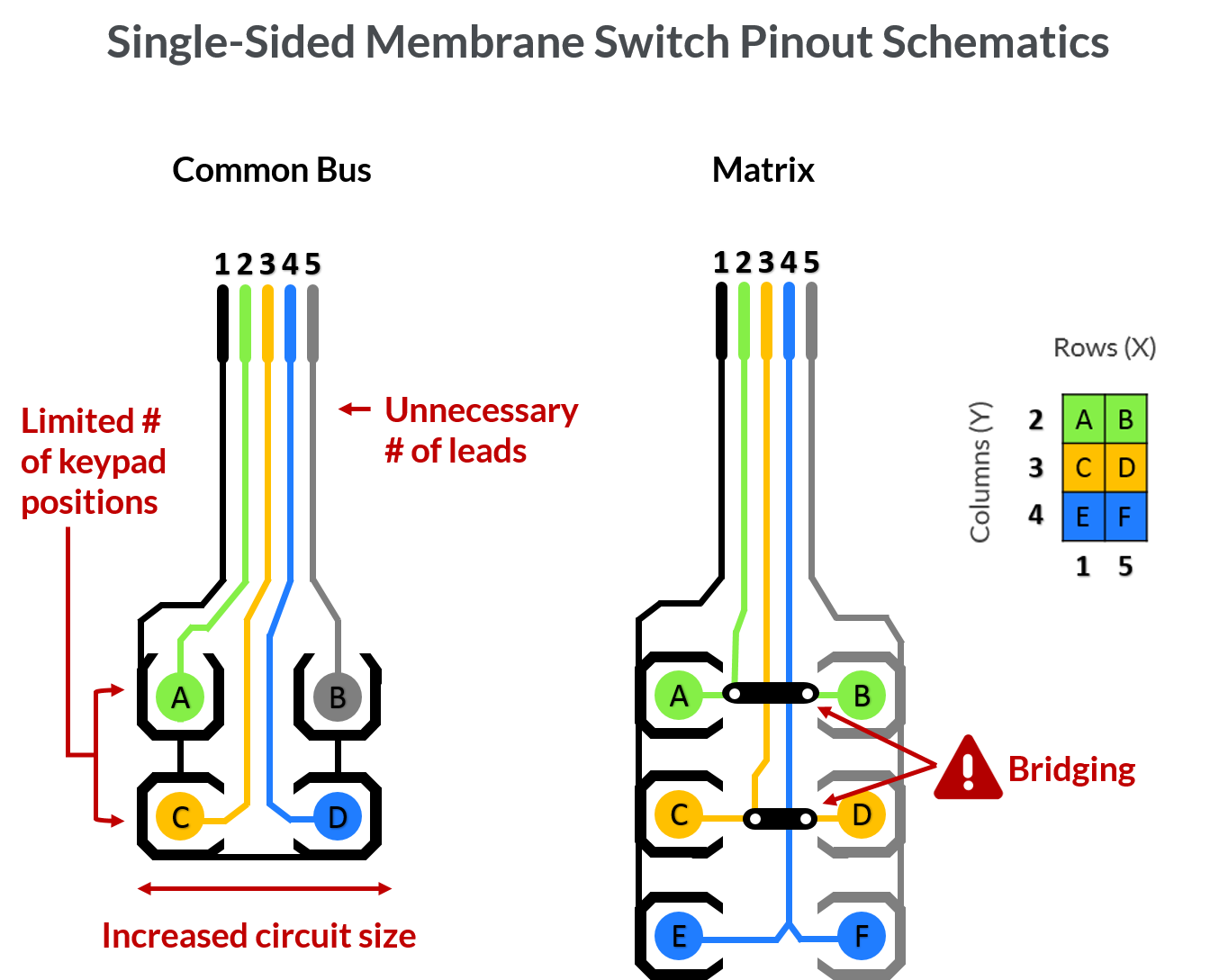Membrane Switches: The Best Choice for Compact and Reliable Controls
Recognizing the Value of Membrane Switches in Interface
Membrane switches are integral components in the layout of reliable user interfaces, promoting not just performance yet also enhancing visual appeal and customer communication. As we explore the future patterns and different benefits associated with Membrane innovation, it ends up being clear that these buttons are a lot more than simply parts; they represent a convergence of technology and practicality.
What Are Membrane Switches?

The spacer layer, which has glue buildings, permits the splitting up of the circuit layer from the overlay, making certain that the button continues to be in a non-activated state till pushed. When pressure is related to the overlay, it presses the spacer layer, connecting the gap and finishing the circuit in the underlying layer. This layout not only reduces the physical room needed for conventional mechanical buttons but additionally improves the sturdiness of the device, as Membrane buttons are typically resistant to dust, dampness, and various other environmental variables.
Frequently found in applications varying from consumer electronic devices to medical devices, Membrane buttons are important to contemporary technology, giving a effective and straightforward user interface that lines up with contemporary layout needs.
Advantages of Membrane Switches
While many button innovations exist, Membrane Switches deal distinct benefits that make them particularly preferable in numerous applications. One of the main advantages of Membrane switches is their portable design, which enables space-saving implementations in gadgets where realty is limited. Their slim account not only improves visual appeal however additionally facilitates light-weight construction.
Another substantial benefit is their resistance to ecological variables. Membrane switches are commonly sealed against wetness, dirt, and contaminants, making them optimal for usage popular environments, such as medical gadgets and commercial tools. This durability prolongs the life expectancy of the button, lowering maintenance costs and boosting reliability.
Furthermore, Membrane switches can be personalized to satisfy certain layout needs, incorporating unique graphics and colors that enhance individual interaction. Their tactile responses choices can likewise be customized to supply an enjoyable customer experience. In addition, Membrane switches are cost-effective, particularly in high-volume applications, as they can be produced efficiently.
Applications in Various Industries

In the customer electronics field, Membrane switches are widespread in gadgets such as microwaves, washing equipments, and remote controls. Their tactile comments and aesthetic choices boost individual experience while giving a smooth, modern appearance. Additionally, automotive makers use Membrane buttons in control panel controls and infomercial systems, where space is limited, and individual engagement is essential.
Furthermore, the industrial field leverages Membrane buttons in control panels for machinery and tools, enabling intuitive procedure in frequently rough environments. Their resistance to chemicals and dampness ensures durability and reliability in these applications. Generally, the flexibility of Membrane Switches adds considerably to their prevalent use, making them crucial in various technical domain names.
Design Considerations for Membrane Buttons

When creating Membrane buttons, numerous key considerations need to be taken right into account to ensure optimal performance and individual experience. To start with, the selection of products is critical; choosing resilient, top notch substratums can boost the switch's longevity and resistance to environmental elements such as moisture and temperature fluctuations.
Secondly, the design of the visuals overlay need to focus on clearness and simplicity of use. Icons and text must be legible, and the format needs to promote user-friendly interaction (membrane switches). Additionally, responsive responses is crucial; including a tactile dome or other devices can boost the individual experience by offering physical confirmation of activation
An additional crucial element is the switch's electric performance. Designers should make certain that the conductive traces are correctly made to reduce resistance and stay clear of signal interference. This includes analyzing the required actuation force and ensuring compatibility with the digital components they will certainly interface with.

Future Fads in Membrane Technology
As modern technology continues to advance, Membrane switches are positioned to develop dramatically, driven by developments in products and manufacturing methods. One emerging pattern is the unification of sophisticated products, such as conductive inks and flexible substratums, which improve durability and minimize the total weight of Membrane buttons. These products not only enhance the responsive response yet additionally permit the style of buttons that can stand up to harsher environmental problems.
In addition, the integration of Continue touch-sensitive innovations is transforming typical Membrane Switches into more interactive interface. Capacitive touch sensing units installed within Membrane button panels can provide a much more instinctive and receptive customer experience, aligning with the expanding need for smooth, modern styles in consumer electronic devices.
Furthermore, advancements in printing techniques, such as digital and 3D printing, enable rapid prototyping and customization of Membrane buttons. This adaptability enables producers to react more swiftly to market needs and customer choices.
Finally, sustainability is ending up being a considerable focus, with makers discovering environmentally friendly materials and processes. check my site As these patterns unfold, the future of Membrane innovation assures enhanced performance, visual appeal, and environmental duty, strengthening their function in advanced interface throughout various markets.
Verdict
In verdict, Membrane Switches stand for a vital element in the style of customer interfaces, combining performance with aesthetic adaptability. Their advantages, including longevity and resistance to environmental elements, make them appropriate for diverse applications throughout different sectors. Thoughtful style considerations boost user interaction and experience. As developments in innovation proceed, the development of Membrane buttons is expected to further fine-tune interface, driving advancement and enhancing functionality in a progressively complicated technical landscape.
Membrane buttons are important components in the style of reliable user interfaces, facilitating not just performance yet also improving visual appeal and user communication.Membrane Switches offer as a crucial part in various individual interfaces, assisting in a smooth interaction between customers and digital devices.While many switch technologies exist, Membrane Switches offer distinctive benefits that make them particularly preferable in numerous applications.In addition, Membrane switches can be personalized to fulfill details design demands, including unique graphics and colors that enhance user interaction.In conclusion, Membrane Switches represent a vital component in the style of customer browse around this site interfaces, incorporating capability with aesthetic versatility.